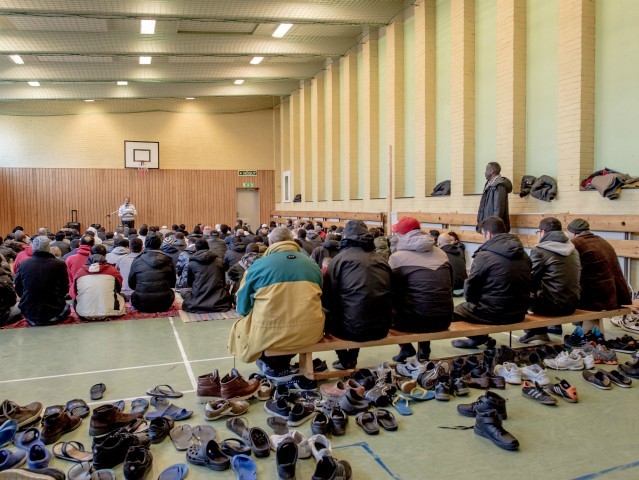Swedish economics professor Johan Eklund has criticised the government’s failure to integrate migrants who arrived in 2015 into the labour force.
A total of 163,000 migrants came to Sweden during the height of the migrant crisis in 2015, and of those granted asylum, around 60,000 were given permanent residency. But despite efforts, just over half of those aged 20 to 64 with residence rights had worked at all in 2019.
Around 11,900 migrants were said to be on local welfare programmes in 2019 while 10,000 benefitted from parental allowance and 8,700 received student aid money, newspaper Helsingborgs Dagblad reports.
“I am not prepared to point the finger in any direction about whose failure it is. But as an economist, I react to the fact that there are thousands of individuals of working age who have no income whatsoever,” said Johan Eklund, a professor at Blekinge Institute of Technology.
“This is a burden to society. The dependency on grants is a socio-economic cost. There is also the question of what happens to individuals who do not participate in society?” he added.
Even among the 35,400 or so migrants who had worked in 2019, many did not earn high salaries, making an average of just 100,000 Swedish kronor (£8,840/$11,440) for the year, with women earning just 52,000 kronor (£4,600/$5,950) on average.
A study authored by Professor Eklund showed that of the migrants who came to Sweden between 1990 and 2016, only half managed to become self-sufficient and not require government benefits after 12 to 13 years of living in the country.
While Swedish politicians have pushed for more refugees, asylum seekers, and other migrants to fill needed jobs, Sweden has had great difficulties integrating new arrivals into the workforce with the unemployment rate for foreigners remaining far higher than that of native Swedes.
One reason for higher unemployment among migrants, other than the language barrier, has been a lack of education. A Swedish Public Employment Office report earlier this month revealed nearly half of the foreigners without work registered with them had no high school education.

COMMENTS
Please let us know if you're having issues with commenting.